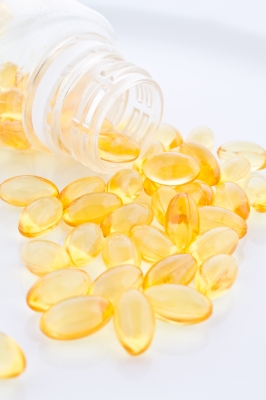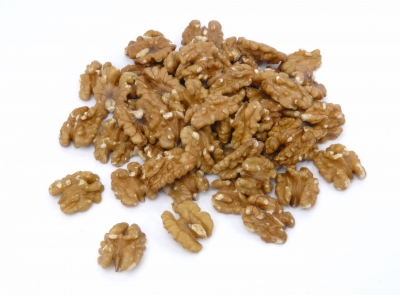This post has been a long time coming, but it’s also been one of the topics I’ve been most looking forward to exploring on this blog.
I try to put a reasonable amount of effort into researching each post that’s about nutritional science. This ensures that the information I’m giving you is accurate, but also gives me a valuable opportunity to read the latest research in depth, and contributes towards the Continuing Professional Development (CPD) that I have to do to be accredited as an APD anyway. I actually find writing these blogs helps to reinforce what I’m reading in the scientific literature, so even just from a self-centred point of view, it works well!
After finishing this series on fats, I’m actually looking forward to branching out a bit and looking at other aspects of enjoying healthy eating, such as recipes, tips, and overcoming barriers to eating healthily. We’ll see where this takes us!
…
Omega-3 undoubtedly remains one of the highest profile nutrients there is. And accordingly, the variety of Omega-3 supplements continues to expand. We all know fish oil, but krill oil and even calamari oil have entered the scene. And don’t worry if you’re vegetarian, because you can even buy algal oil (yes you read that correctly, oil from algae) that provides a plant-based source of Omega-3 fatty acids.
To recap, fats in our diet look something like this:
So, Omega-3 is one of the forms of polyunsaturated fatty acid in our diet. The other is Omega-6.
Food sources
Unlike Omega-6, there aren’t very many foods that are naturally good sources of Omega-3 fatty acids.
Oily fish is the best source of Omega-3 in our food system. Good sources include:
- Salmon
- Sardines
- Mackerel
- Herrings/kippers
- Tuna
Plant foods generally aren’t the greatest sources of Omega-3. Linseeds/flaxseeds, flaxseed oil and walnuts contain higher levels of Omega-3 than other plant foods, although they still contain much less than fish does. Canola oil, and margarines containing canola oil, contain more Omega-3 than seed oils.
Some food companies have also started fortifying foods with Omega-3, like eggs.
EPA, DHA, DPA and ALA: Fancy acronyms
Sometimes, you might come across Omega-3 being described as ‘EPA’, ‘DHA, ‘DPA’, or ‘ALA’. These are all, of course, acronyms for much longer scientific names. For example, ‘EPA’ is short for eicosapentaenoic acid. Don’t worry about these too much- for the most part, you’ll only hear them when processed food companies want to impress you with scientific jargon. But if you’re interested, ALA is only found in plant foods, while EPA, DHA and DPA are found in animal foods (mainly fish).
Omega-3 from fish seems to be more effective than plant Omega-3 (ALA) at raising levels of Omega-3 within the body. But this doesn’t necessarily mean that Omega-3 from fish is more effective at reducing your risk of heart disease. Until more research is conducted, we don’t know whether this has any practical implications.

Canned fish is a convenient way to get your Omega-3 fatty acids.
Tuna and mackerel (pictured above) are two good sources of Omega-3.
Why is Omega-3 good for me?
The health effects of Omega-3 have been thoroughly researched. Many of the health benefits of Omega-3 are thought to be due to its anti-inflammatory properties, although it also has a range of other properties.
In addition to being anti-inflammatory, Omega-3 also: (source)
- Lowers the amount of triglycerides (fats) in our blood (only animal/fish forms of omega-3 do this)
- Is anti-clotting, at high doses
- Reduces blood pressure
- Improves the function of our blood vessel lining (which helps to prevent heart disease)
- Helps to prevent heart rhythm abnormalities
Most of the research around Omega-3 has centred on its role in promoting heart health. There is strong evidence that people who regularly eat fish are less likely to suffer from, or die of, heart disease, or to have a stroke. A British Journal of Cardiology panel noted that the health benefits of fish seem to be strongest when it comes to death from heart disease or sudden cardiac death. For example, men who eat oily fish at least once a week have only half the risk of sudden cardiac death, compared to men who eat it less often.
Studies have also examined the role of Omega-3 fatty acids in a wide range of other diseases, including risk of premature birth, treatment of depression and other mental health disorders, management of rheumatoid arthritis, and risk of developing certain cancers and diabetes. Omega-3 seems to play a role in some of these, and not in others.
Should I take fish oil supplements?
For the general healthy public, ideally aim for 2 serves (150g) of oily fish per week, as part of an overall varied diet that includes plenty of plant foods. This figure is based on recommendations from the Heart Foundation of Australia and the British Heart Foundation. You probably don’t need fish oil supplements if you have 2 or more serves per week and don’t have any medical conditions.
If you never or rarely eat oily fish, a fish oil supplement of 500mg DHA + EPA (not 500mg fish oil- read the label) (source) may be worth considering. But it’s up to you.
Speak to your doctor if you have any medical conditions, or have had a heart attack or stroke. They will be able to give you advice specific to your individual situation.

Fish oil supplementation isn’t necessary for most of the general healthy public. Enjoy oily fish by preference.
Image courtesy of artemisphoto/FreeDigitalPhotos.Net
What about overfishing and environmental issues?
Overfishing is a major global issue, so you’re right to be concerned if this is on your mind. Check out the Marine Stewardship Council’s Sustainable Seafood Product Finder, and look out for the Marine Stewardship Council symbol on products in your supermarket to see if your fish is sourced sustainably.
What about vegetarians and vegans? How do they get enough Omega-3?
This is a puzzle that I was looking forward to investigating, to be honest. Vegetarians eat much less Omega-3 than omnivores, and vegans eat even less. Correspondingly, vegetarians and vegans both have much lower levels of Omega-3 in their bodies. We also know that heart disease rates are much higher in people with a low Omega-3 intake. But, as many of us would know, vegetarians have a much lower risk of heart disease than average (according to an analysis of 7 studies combined, the risk is reduced by 29%).
The short answer is that there is no evidence (to date) that vegetarians and vegans need Omega-3 supplements for their heart health. Even though they certainly have lower Omega-3 levels, this may or may not necessarily translate to an increased risk of heart disease (given their already reduced risk). More studies are needed!
For now, if you’re a vegetarian or vegan, try to include a good source of omega-3 each day (such as a handful of walnuts or linseeds/flaxseeds) for general health, and to swap to canola oil and margarine. You may wish to consider using a plant-based Omega-3 supplement (derived from algae).

Walnuts are one of the few good plant sources of Omega-3
Image courtesy of Suat Eman/FreeDigitalPhotos.net
Summary
- Oily fish is the best source of Omega-3 fatty acids in our food system
- People who eat fish regularly have a lower risk of either developing or dying from heart disease, or having a stroke
- Eating 2 serves of oily fish per week, as part of a varied eating pattern that includes plenty of plant foods, is recommended for our heart health
- Vegetarians have lower levels of Omega-3 than omnivores. But it isn’t clear whether this has implications for their heart health or not.
And remember, essential as Omega-3 is, there is no such thing as a miracle nutrient. It’s your whole diet that matters. The best thing is to enjoy a varied and colourful eating pattern, full of lots of plant foods. And unless you’re vegetarian, 2 serves of oily fish per week!
– Sonia
…
Disclaimer: This post is designed for the general population. If you suffer from a specific medical condition, consult your GP or Dietitian for advice specific to your individual circumstances.

